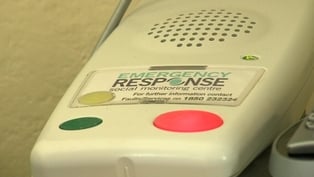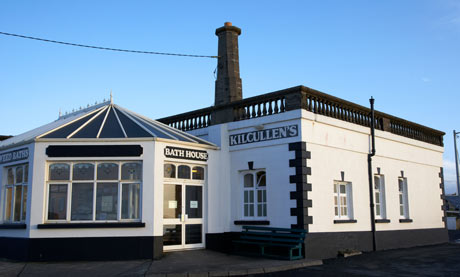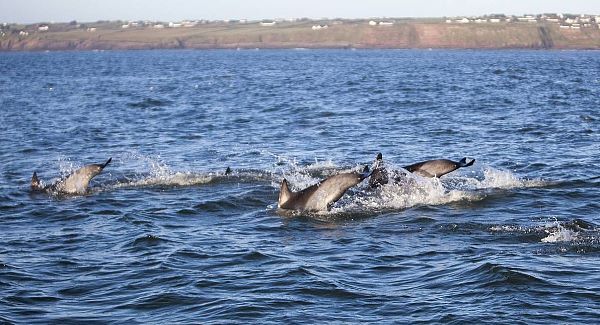Revenue Commissioners to lay down the law with Irish household tax charge


Within the next couple of months almost two million homeowners will get a letter from the Revenue Commissioners with an indicative valuation of their home and an estimate of the local property tax due based on that valuation. Charged with collecting the property tax following the fiasco of the household charge, Revenue is leaving nothing to chance.
Not known for their expertise in the area of property valuation, it is expected that Revenue will get some assistance from the State’s Valuation Office in estimating the value of every home in the country.
This would be no mean achievement. The Valuation Office, which services all government departments and state bodies, is reported to have taken 12 years to value residential property in just three local authority areas (Fingal, Dun Laoghaire-Rathdown and South Dublin). It’s a far cry from three areas in 12 years to two million homes in under six months.
In a dysfunctional property market Revenue is set to depend on information from the Property Services Regulatory Authority’s new register of residential property sales, first published in autumn 2012, with some support from CSO and ESRI surveys. This register is compiled from Revenue’s own records of stamp duty paid, but only since the start of 2010. That information is going to be a bit patchy.
For example, I checked the property price register for Co Carlow for each of the years 2010, 2011 and 2012 and couldn’t find a single transaction in the whole of the county for any one of the three years.
And even though Revenue seems confident about valuing our homes for us by March, it doesn’t expect to have a full database of homes in the country until July.
They are understood to be expecting a huge fallout from the issue of the March letters because of the potential for error in matching names and addresses and of events such as deaths and emigration. It seems that they are planning to pour scarce resources into staffing helplines and dealing with the correspondence that these mistakes are bound to create.
Revenue is due to issue guidelines on how to value your property. But we already have a hint from the budget papers about what to expect. Guidelines issued with the papers say that where you accept Revenue’s valuation, it will not challenge it, which seems highly sensible; or where certain procedures are followed, such as engaging the services of a competent valuer, they will not challenge that valuation. Music to the ears of the valuers’ profession, I would think.
If you insist on valuing your home yourself Revenue may challenge your valuation. I’d be very surprised if it challenges many in the first year or two. It’s going to have its hands full managing the administration of the tax. Payment will be the goal, along with improving on the household charge payment level.
If it should challenge your valuation, you should know that it has the power under new legislation to authorise someone to enter your home to value it. This is an incredible power – the only other circumstance where Revenue can enter your home is on foot of a search warrant in a criminal case.
Accepting Revenue’s valuation means accepting its estimate of the tax due. If you don’t either pay the estimate or replace it with a figure based on your own valuation, Revenue’s estimate becomes due on July 1, 2013 .
According to Revenue, it will collect the amount due in the “normal ways” but the methods it is proposing to use: deduction at source, attachment of salaries and wages, etc, are far from normal collection measures.
These are at the extreme end of collection enforcement. Attachment means that Revenue can go to your employers and instruct them to deduct the tax from your salary without having to get a court order.
A provision in the 2011 Finance Act which allows Revenue to seize arrears of income tax from wages and salaries caused outrage in the Seanad. Senator Eugene Regan (Fine Gael) likened it to a police-state type provision and Indepen
dent Senator David Norris said it was a horrendous power to exercise against the citizen.
This is a power that Revenue is now describing as normal and is planning to use as the first line of action in collecting unpaid property tax from PAYE workers.
The self-employed are not getting away too lightly either. If they don’t pay the tax, Revenue will refuse to issue a tax clearance certificate, which is needed both for doing business with government and, in many cases, to carry on a business at all.
More sinister, however, is a suggestion that Revenue will make it part of your income tax return and that late payment of the property tax will result in a surcharge on income tax.
All of which makes the local property tax neither local nor a property tax. It is to be collected centrally by Revenue as if it was a tax on income with no input from local authorities (except a power in future years to vary the amount).
What is even weirder is that local authorities will have to pay the tax on social housing – if it really was a local tax, they would be paying it to themselves. As it is, they will have to apply scarce resources to handling the payment, presumably at the expense of badly needed local services.
Enda Kenny confident over Irish bank debt deal with ECB


Taoiseach Enda Kenny said he did not ‘contemplate defeat’ over an Anglo Irish Bank debt deal
Enda Kenny has said he is confident the Government will get a deal on Anglo Irish Bank debt by March.
He said negotiations on the promissory note with the European Central Bank were complex and detailed.
A three billion euro repayment is due by the spring.
“I am confident we will see a deal before the end of March, which is when the next repayment is due,” he told RTE’s This Week. “I don’t contemplate defeat here.”
Around 31 billion euro in promissory notes from the European Central Bank was used to recapitalise the former Anglo Irish Bank, now called the Irish Bank Resolution Corporation.
The Taoiseach was also asked about the ongoing disturbances over the Union flag, which he said were destroying the economy of Northern Ireland and the reputation of Belfast.
He said the violence must not be allowed destroy the good work done since the implementation of the Good Friday Agreement.
Sinn Fein leader Gerry Adams accused Mr Kenny of patronising citizens over the promissory note.
“In reality it couldn’t be more straightforward – this government needs to stand up for Irish citizens and stop using public money to prop up banks and bankers.
“It needs to put the interests of Ireland first in any negotiations at European level.”
Decision to reverse cuts to elderly alarm scheme welcomed by Age Action


Age Action has warmly welcomed media reports that the Government has reversed its decision to funding for the Seniors Alert Scheme for older people.
Last week the Government wrote to groups to inform them that funding that for the scheme had been cut from €2.4 million last year to €1.15 million in 2013. Only people aged over-65 and living alone would be eligible for a grant.
 The move prompted an angry reaction from a number of politicians in Donegal as well as several groups representing older people.
The move prompted an angry reaction from a number of politicians in Donegal as well as several groups representing older people.
The Taoiseach told RTE’s “This Week” programme that everyone aged over-65 would be eligible to apply for a grant under the scheme. A Department of Environment spokesman later confirmed to RTE that funding for the scheme had also been reinstated to 2012 levels.
“Age Action warmly welcomes the Government’s decision to reverse these cuts,” Age Action spokesman Eamon Timmins said.
“We are glad that common sense has prevailed and that the scheme can continue to support older people in living independently in their own
Ireland’s western heaven for seaweed spa bath’s


Spa retreats don’t have to cost a fortune. At a century-old seaweed bathhouse in north-west Ireland, our writer dunks for a day for €25
If I turn my head to one side, I find I can actually breathe through the seaweed. And as I inhale, hot fleshy fronds fall into my mouth. At first I was wary of them. Now, I’ve started to nibble the fronds. In fact, I can’t resist them: they taste and feel like salty pencil erasers with an inner layer of softened fingernail. Bizarrely delicious. With a warm complex smell, like damp dog and hops.
Hot seaweed is piled all over my body and my head, and through the steamy haze I can just make out the figure of my middle son, Rex, who’s 15. He looks like a Dalek. His body is encased in a plywood box. His head protrudes through a hole in the top and great white clouds of fresh seawater steam curl out of the box and around his neck, like a frilly collar. His eyes are glazed. He looks like he’s on drugs.
We are sharing a cubicle at Kilcullen’s Seaweed Baths on the edge of Enniscrone beach in County Sligo in the North-west of Ireland. We are in a huge, ancient cast iron bath with crackled cream enamel, and we have decided to float on our back in the green water, piling the huge mounds of luscious fleshy seaweed all over us. We float easily in this salty hot water, andeasily close our eyes and breathe through the steamy fronds; It feels like we are on drugs.
There’s no time limit here as a red-haired freckled-faced teenager tells us as she showed us to our bedsit-sized cubicle. “If the bath water gets cold there’s plenty more of the same hot stuff in the tap.”
She then showed us a wooden lever inside the box that, if pushed a certain way it would gush Industrial Revolution-sized clouds of seawater steam into the cabinet. She suggested that we take it in turns: one in the bath, one in the steam box, until we are both perfectly blanched. Then, she suggested, we should scoop all the seaweed out of the bath, pile it into the bucket provided (we could easily have filled two buckets with all our steaming weed); let out our bathwater, and then take it in turns to stand under a fireman’s hose-like shower of fresh cold seawater.
Lying in the bath we can feel a warm mucous slime beginning to cling to our skins. It’s womb-like soft and velvety. Sensual people with skin conditions; eczema and dermatitis, as well as sportsmen and women love these baths. Many of the local pensioners have season tickets (“To warm their old bones in the winters”) and were told it is a very popular hangover cure. After the hot silky seaweed soak, the stinging, cleansing, pins-and-needles of the cold seawater shower leaves a bather feeling newly minted.
The baths are housed inside a castle-like structure built in 1912, with flat roofs to hold the massive reservoirs that are filled twice a day with seawater pumped from Enniscrone bay. Standing outside, we lick our honeycomb-flavoured ice-creams and stare across the massive billiard table-flat sandy beach towards America. There’s no land between us and New York.
Actually, we’re in Ireland for salmon. The river Moy, flowing from Loch Conn to the estuary at Ballina, is the most prolific salmon river in Ireland. And two miles of the middle Moy, in County Mayo, flows along the edge of the Mount Falcon hotel’s 100 acres of lush wooded grounds.
We and our four children are staying in a self-catering cottage overlooking the hotel’s trout lake. Three of the children caught salmon on the first morning. The Moy is hoaching with fresh-run fish this season. Anglers have been enjoying a boom in salmon catches ever since the Irish government was finally persuaded, in 2007, to close down the commercial drift net fishery that captured thousands of Irish salmon on their return migration from feeding grounds around Greenland.
In our week of travelling around the west coast from Mayo up to Donegal, we fished rivers and lakes, swam in the sea, hiked across peat bogs, climbed “One man’s path” up Slieve League, the 600m-high sea cliffs that fall in a sheer testicle-shrinking drop, to the white topped sea below. We drank Guinness, we rowed across a bay to a sheep-inhabited island no bigger than a football pitch where we barbecued mackerel and ate them with soda bread and horseradish sauce. We caught six salmon in total. We released two (hen fish are a precious resource) and cooked two. And we left two at Clarke’s Salmon Smokery in Ballina, to be posted on to our home in Dorset.
The things we enjoyed the most about Mayo were the things that haven’t changed for decades, the sea, the sand, the salmon, the scenery and the people.
“Would you be wanting to take your seaweed home with you?” asks Ted, a biochemistry student from Galway University, who is working the summer holidays at Kilcullen’s, which was opened by his great-grandfather 100 years ago.
Our mouths open and close like a fish. We don’t quite know how to answer his question. He then explains that some people like to reuse their bucket of serrated wrack (Fucus serratus) in a bath back at home. The wrack is harvested by hand, by his cousins, from the beach at low tide every day of the year except Christmas day. Some people also like to take it home to spread on their garden as fertiliser.
Sadly we have to decline this so delightful and very Irish offer. we just know Ryanair will have a small-print policy about seaweed in hand baggage. Sadly, too, there has in recent years been an erosion of this grounded and charming Irishness.
“A lot of fecking froth,” says Alan Maloney, owner of the Mount Falcon. “Aw Jeez, there was an awful, awful lot of froth. Yep, we all got to look pretty stupid for a while back there.”
Alan is, of course, referring to the Irish banking crisis and the fatal wounds inflicted on the once rampant Celtic Tiger economy. He had built a helipad in the grounds.
“Helicopters were buzzing in and out of here like bees,” he remembers. “Businessmen from Dublin, flying up just for lunch. Americans buzzing from golf course to golf course.”
Now, the helicopters have stopped buzzing. And tourists have dwindled as the euro crisis has deepened. And some of the froth just looks silly.
Not this, though. A 100-year-old hot sea water and seaweed bath experience costs €25 for one (€32 for two). A family suite of two huge baths and two steam boxes costs only €40 (“And you can have as many as you like in there,” says Ted. “We had a whole hen party in one before now. It was mad.”)
Elsewhere in Mayo, there are boutique “spa” hotels advertising caviar facials at €130, a “Rasayana eternity body booster” at €100 or a “half-hour exotic coconut and frangipani wrap/float” for €80.
GROUP SPOTS FIRST WHALES OF SEASON OFF THE WEXFORD COAST OF IRELAND


The first whales, of what has now become known as ‘Whales Watching Season’ on the Hook Peninsula in county Wexford, have been spotted.
The Irish Whale and Dolphin Group confirmed the sightings of two Humpback Whales, five Fin Whales and a ‘Superpod’ of Dolphins.
It is the third year in a row they have been seen off the Peninsula for a period of time.
A huge herring haul in the south-east is said to be the main attraction for the mammals.
No comments:
Post a Comment